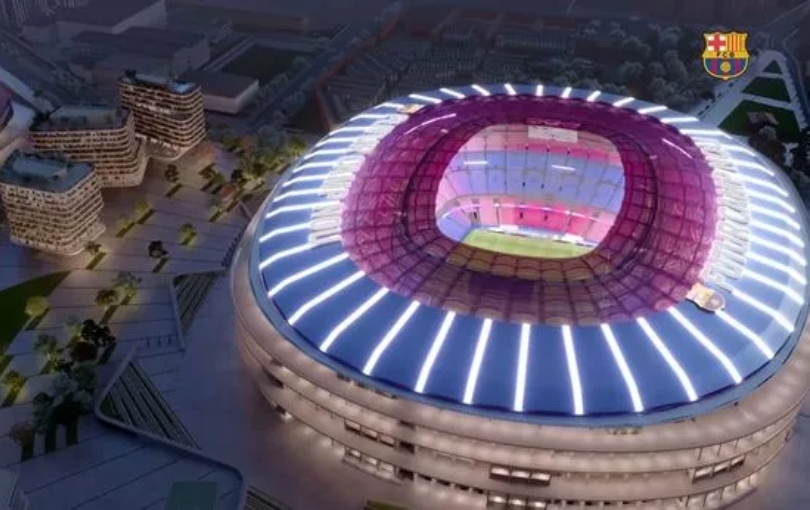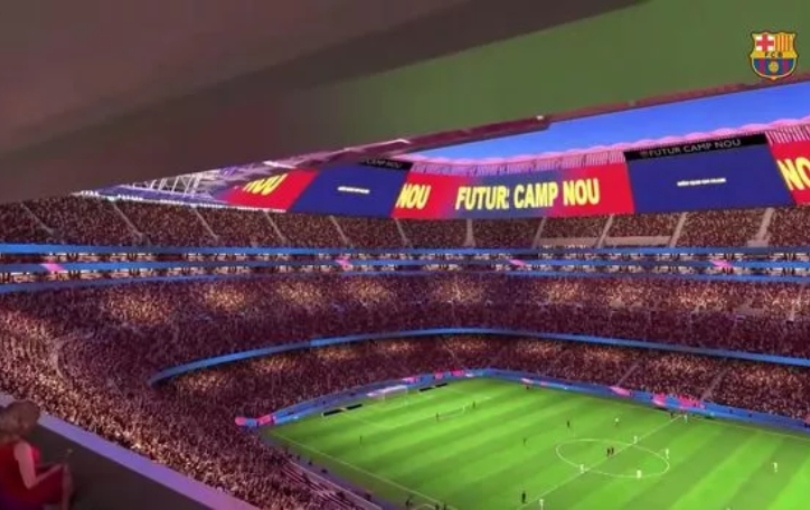Why are Barcelona not playing at Camp Nou? Everything you need to know about the major stadium renovations
Barcelona will have a different home stadium for the 2023/24 season, with Camp Nou undergoing some extensive work

Barcelona have been playing at Camp Nou since 1957, when the iconic stadium was first opened.
With a capacity of 99,354, Camp Nou is the largest football stadium in Europe and, as well as being the home of Barcelona, it has hosted some of the most important games in football, including five at the 1982 World Cup and two European Cup / Champions League finals.
When 91,648 people watched Barcelona Women beat Wolfsburg in the 2021/22 Women's Champions League, it set a record for the highest attendance in the history of women's club football, too.
However, for the 2023/24 season, Barcelona won't be playing at their home stadium, they're instead heading to Estadi Olímpic Lluís Companys, which hosted the 1992 Olympics. But why are Barcelona not playing at Camp Nou? FourFourTwo details everything you need to know below.
Why are Barcelona not playing at Camp Nou?
Put simply, Camp Nou is undergoing an extensive renovation project that will leave the stadium almost unrecognisable from its current guise.
In fact, work had already started on the project even before the end of the 2022/23 season, with a large section of one part of the third tier removed during the midseason break for World Cup 2022.
Barcelona have been planning to make essential fixes to Camp Nou since 2014, when plans for the work were first approved by the club's board members. However, financial issues, Covid and a change in club presidency have meant there's been a long delay in work actually starting.
Get FourFourTwo Newsletter
The best features, fun and footballing quizzes, straight to your inbox every week.
Finally, though, these renovations are being put in place, with Barcelona having to find a new home for the 2023/24 season. They are expected to return with reduced crowds in November 2024, while the stadium will still be under construction. Contractors are targeting the end of 2026 for completion of all work on Camp Nou, with president Joan Laporta even suggesting a tribute match to Lionel Messi could re-open the stadium in its full capacity.
Why is Camp Nou being renovated?
While the largest stadium in Europe, Camp Nou actually has a number of issues that need adressing - not least the safety concerns.
In the last few years a number of reports have been published highlighting concerns over the structural integrity of the ground, with La Vanguardia even suggesting there was a "risk of fragments falling on supporters in walkways" and called for "immediate action". Indeed, 21 games were played at Camp Nou in 2019 and 2020 despite serious structural problems, putting supporters at risk.
Laporta even admitted in 2021 when elected as president that immediate action was needed in order for Camp Nou to pass safety checks, adding further investment in the short-term while the long-term project loomed in the background.

As part of the renovation work, the entire third tier will be demolished, with every supporting structure removed and replaced. This plan intends to increase the amount of VIP seating available, thus improving revenue streams for the club. Other foundational work will be demolished, too, in order to reinforce the stadium and ensure it meets safety requirements.
The capacity will also be increased from 99,354 seats to 105,000, with a roof added covered in 30,000 square metres of solar panels. A 360-degree screen will also run around the entire interior of the stadium, while it will be renamed the Spotify Camp Nou as part of a lucrative sponsorship deal worth £237 million.
Outside the stadium, new office complexes, green spaces, event areas and an on-site hotel will be added, as well as a smaller arena - the Palau Blaugrana - that will host the club's basketball and futsal team.

How much will the Camp Nou renovations cost?
In total, Barcelona are expecting to spend €1.5 billion on the project, with 20 different banks and lenders all helping the club afford the costs. Fortunately for the club, this figure isn't factored into any of UEFA's financial fair play (FFP) regulations.
"The club will start to repay the operation once work has been completed on the stadium, using income generated by Camp Nou, which is forecast to be around €247 million per year," Barca said.

Ryan is a staff writer for FourFourTwo, joining the team full-time in October 2022. He first joined Future in December 2020, working across FourFourTwo, Golf Monthly, Rugby World and Advnture's websites, before eventually earning himself a position with FourFourTwo permanently. After graduating from Cardiff University with a degree in Journalism and Communications, Ryan earned a NCTJ qualification to further develop as a writer while a Trainee News Writer at Future.
